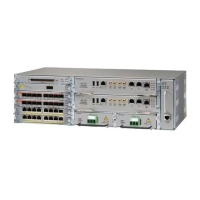GNSS modules have built-in ESD protections on all pins, including the RF-input pin. However, additional
surge protection may be required if rooftop antennas are being connected, to meet the regulations and standards
for lightning protection in the countries where the end-product is installed.
A lightning protection must be mounted at the place where the antenna cable enters the building. The primary
lightning protection must be capable of conducting all potentially dangerous electrical energy to PE (Protective
Earth).
Surge arrestors should support DC-pass and suitable for the GPS frequency range (1.575GHz) with low
attenuation.
•
Antenna Sky visibility:
GPS signals can only be received on a direct line of sight between antenna and satellite. The antenna should
see as much as possible from the total sky. For proper timing, minimum of four satellites should be locked.
The antenna terminal should be earthed at the building entrance in accordance with the ANSI/NFPA 70,
the National Electrical Code (NEC), in particular Section 820.93, Grounding of Outer Conductive Shield
of a Coaxial Cable.
Note
•
Use a passive splitter if more than one GNSS modules are fed from a single antenna.
For information on pinout, see GPS Port Pinout.
Interface Modules
The Cisco ASR 903 Router interface modules are a field-replaceable units. In addition to the ports provided
on an RSP, the Cisco ASR 903 Router supports the following interface modules:
For information about supported interface modules, see the Release Notes for the Cisco ASR 903 Series
Aggregation Services Router .
Note
Cisco ASR 903 Aggregation Services Router Hardware Installation Guide
27
Cisco ASR 903 Router Overview
Interface Modules

